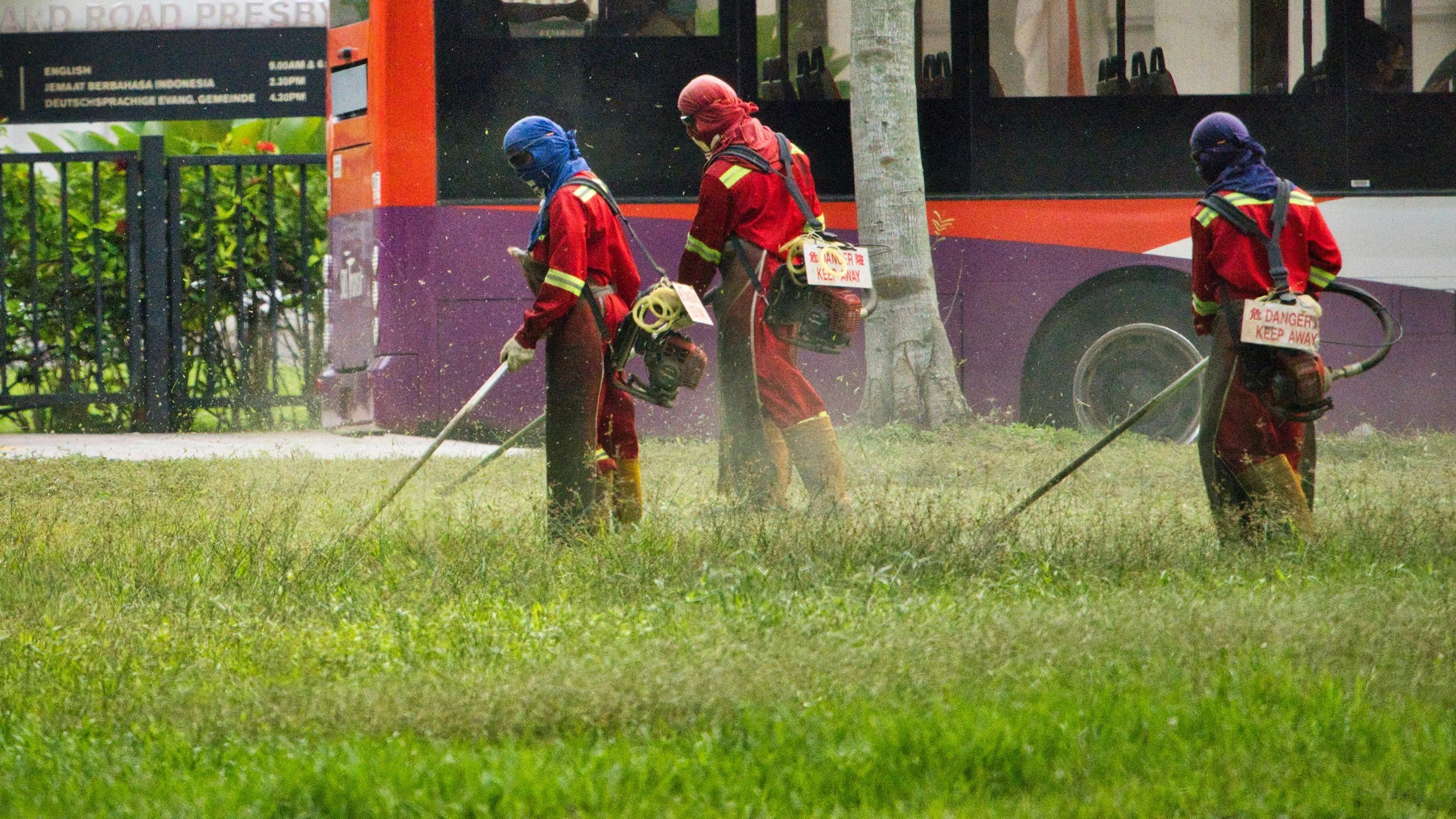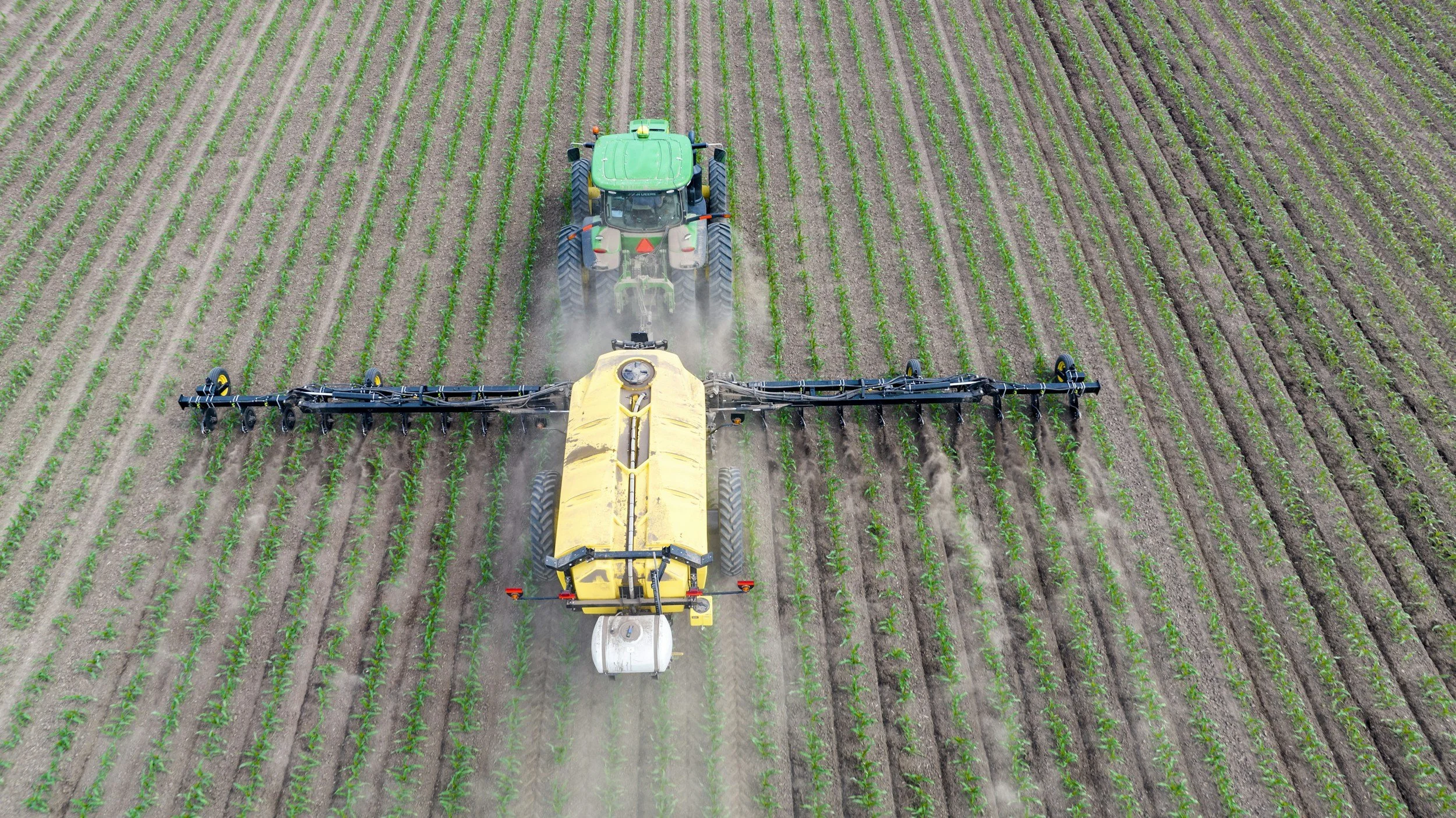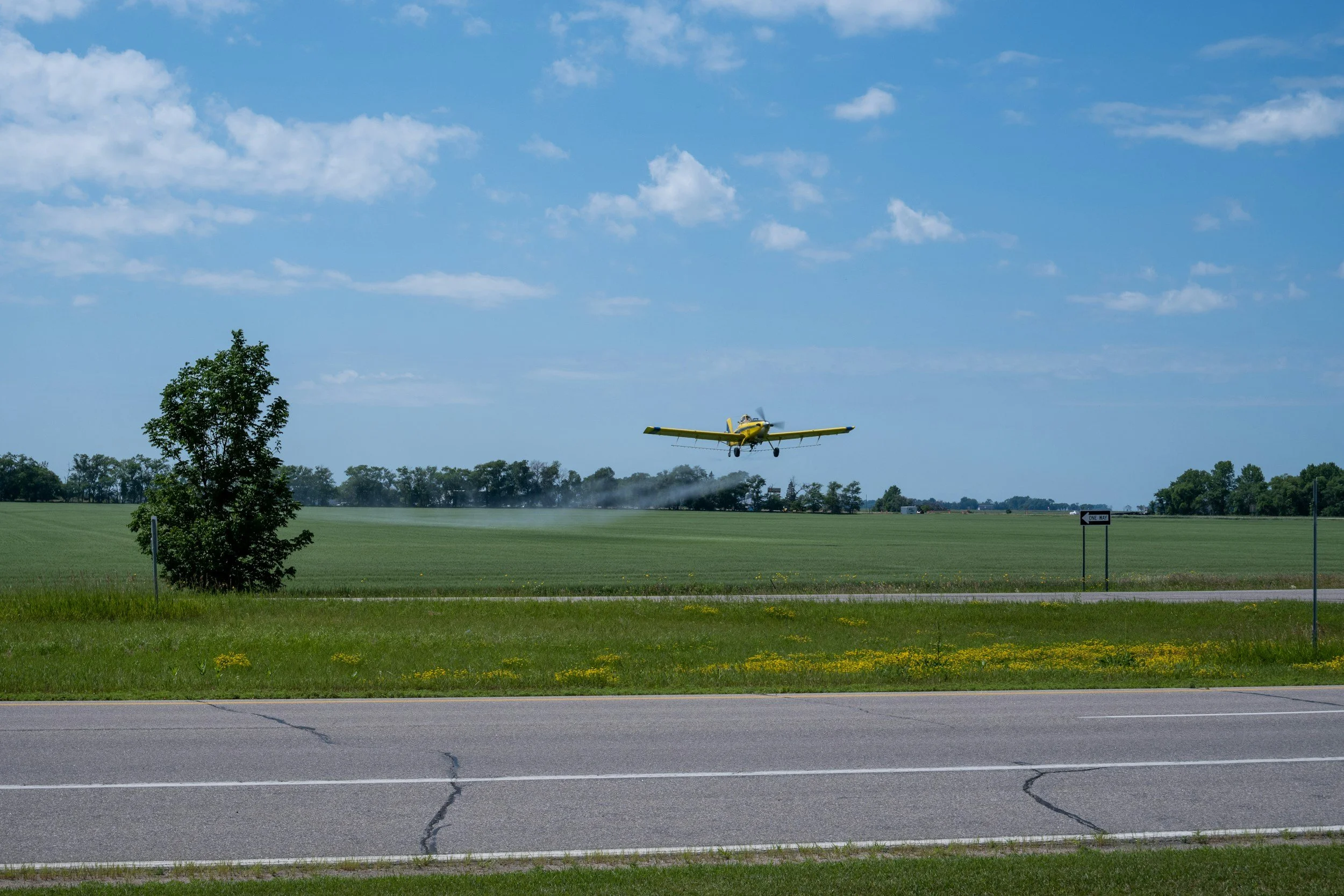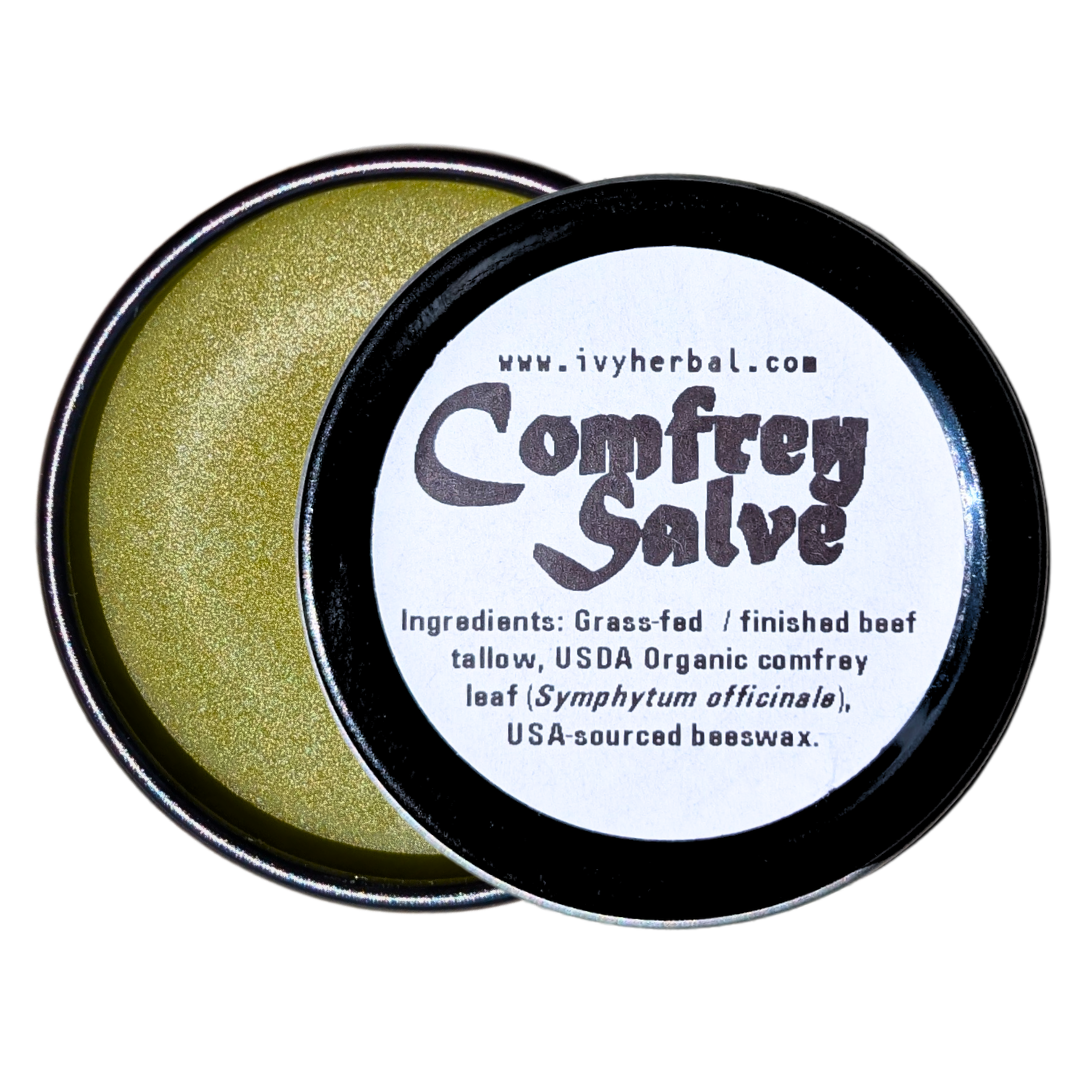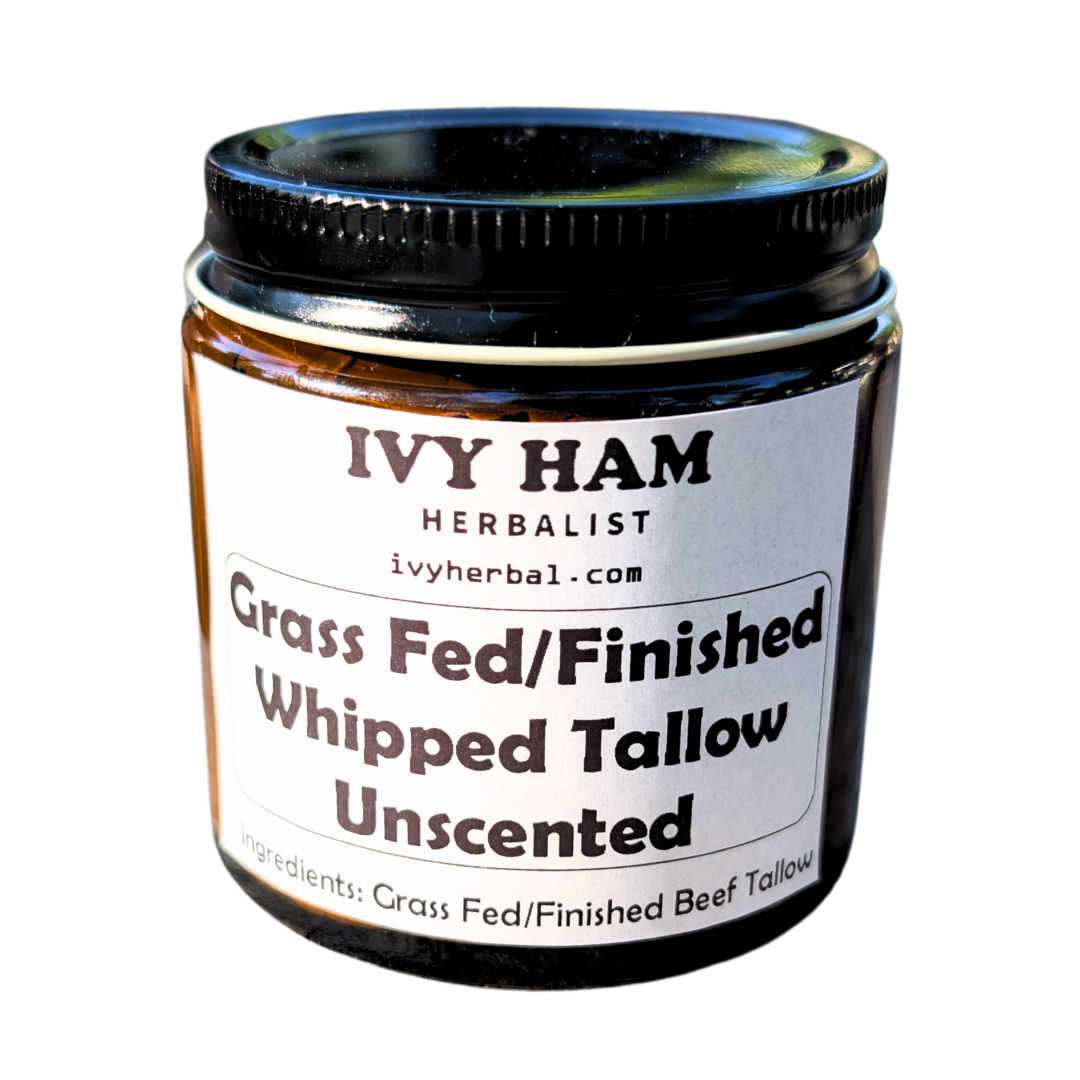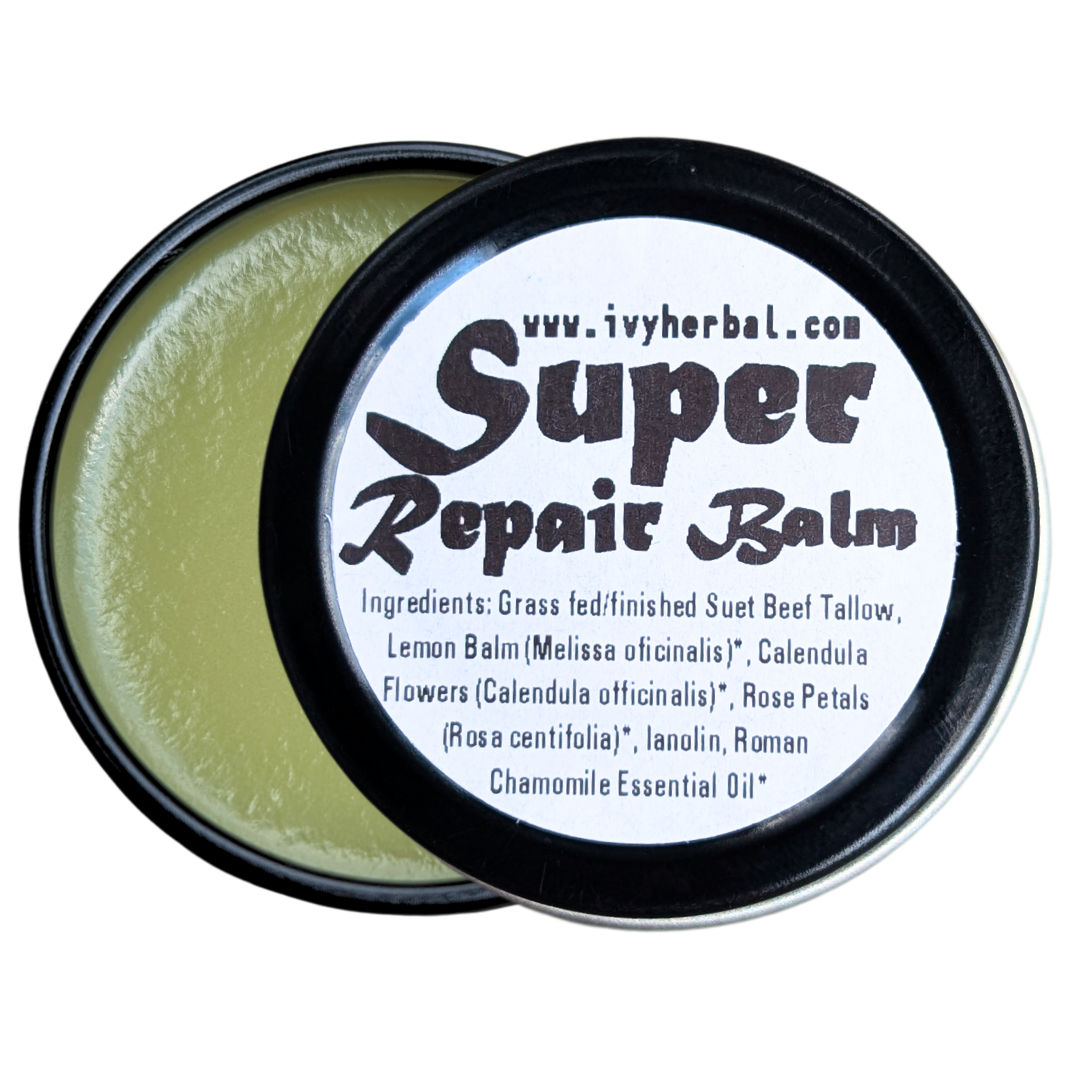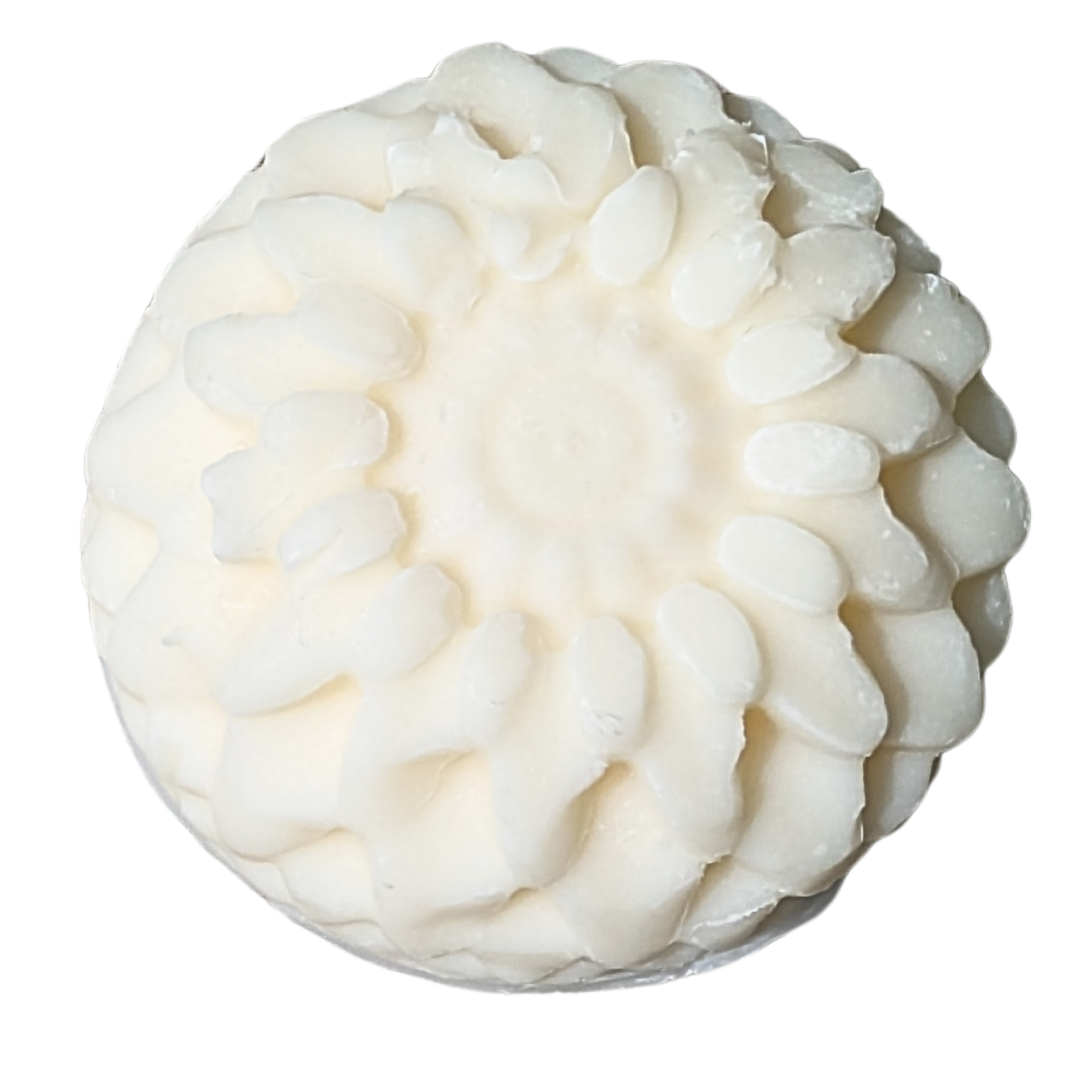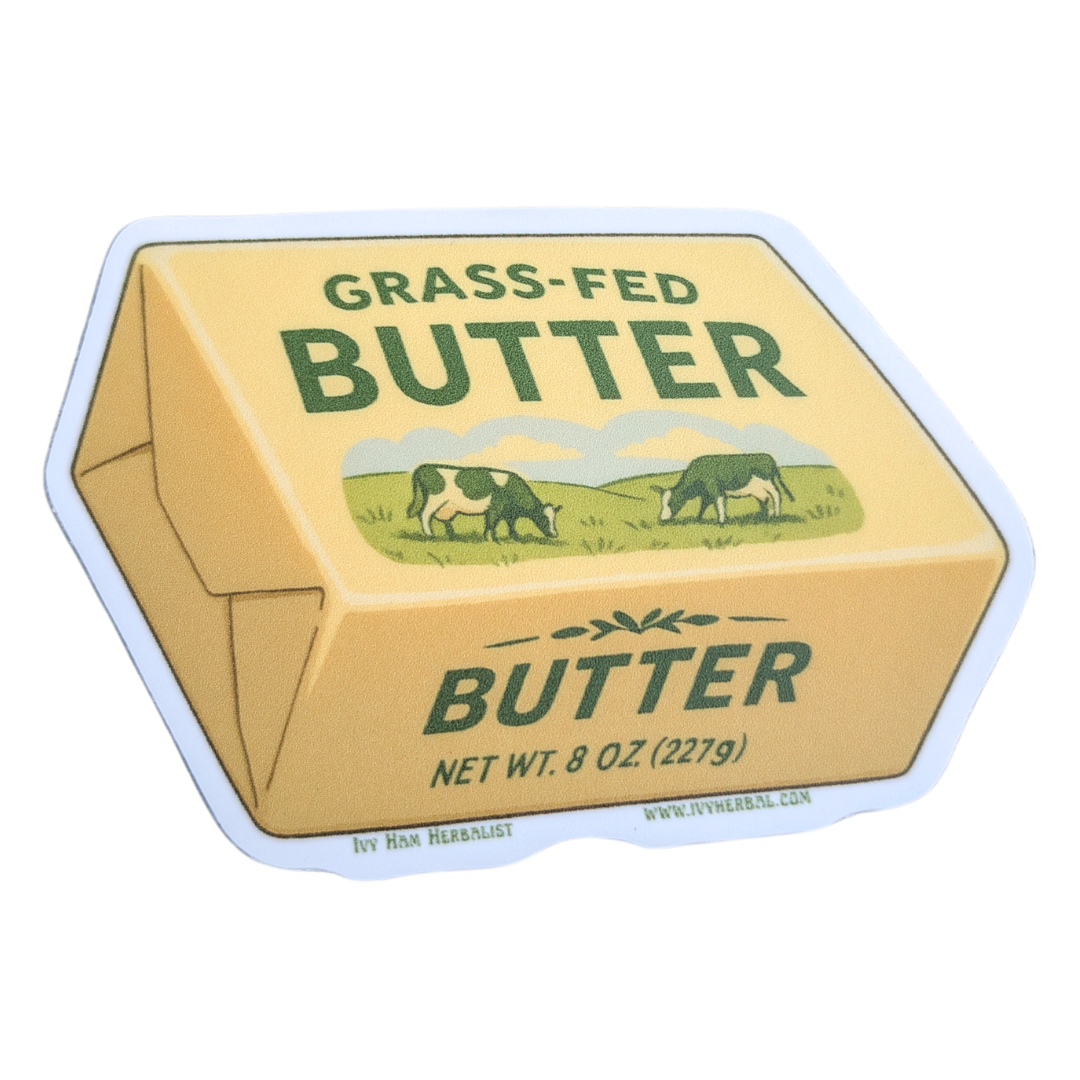Diquat: the “glyphosate-free” weed-killer that may be even more dangerous
Roundup’s new bottles brag that they no longer contain glyphosate, but the active ingredient that replaced it—diquat dibromide—comes with its own, arguably worse, health profile.
What is Diquat?
Diquat is a fast-acting, contact herbicide from the same chemical family as paraquat. Unlike glyphosate (a systemic herbicide), diquat scorches green tissue on contact and is commonly sprayed to desiccate crops before harvest or to knock back weeds in orchards and vineyards. Acute oral-toxicity tests show LD₅₀ values between 30 – 400 mg kg⁻¹, scores which basically mean that that this new version is tens of times more toxic than glyphosate in the same assays.
U.S. farmers now apply about one billion pounds of synthetic pesticides every year—a chemical treadmill that took off after World War II and has only gotten worse since the 1990s, when USDA surveys began documenting near-universal pesticide use on major row crops like wheat, corn, and soybeans. Heavy tillage, monocropping, and high-salt fertilizers burn off soil organic matter and beneficial microbiota, forcing growers to lean ever harder on quick-fix molecules like diquat just to keep yields steady.
GMO Crops
You may be aware of some of the issues with GMO or genetically modified crops. One of the main reasons why they are a huge problem is that they are pretty much designed to only be used alongside these chemical pesticides like RoundUp (e.g. ”roundup ready corn”). They are immune to the pesticide, so that once they’ve been sprayed, everything else dies except for the crop plant, which means less competition with other plants, less labor for weeding and less pest control.
GMO crops are also known to frequently cross-pollinate with nearby organic/non-GMO plants, which often prevents those crops from producing any seeds and also changes the genetic makeup of those plants, which has actually led to several lawsuits against organic farmers due to “theft”.
Because of this and the fact that the genetic makeup of these foods is hypernovel, meaning that we have not evolved eating it and therefore can’t know any long-term harms it may cause, I personally avoid GMO foods as much as I can. I think that we assume so many things are safe, just because we haven’t observed any issues in a couple decades, but we really just have no idea. I can think of several other things we assumed were safe in recent years that actually turned out to be extremely harmful.
My Solution: Regenerative Farming Practices
I think, even though it’s more expensive upfront and possibly will require the invention of new farming equipment to meet the mass scale food supply needs, we need to work on switching over to regenerative farming practices. Aside from the pesticide issue, staying on our current path threatens long-term food security for everyone. Our topsoils are already largely depleted of their minerals, and some scientists predict that we have just 50 years of growing food remaining before our soils are fully depleted. Switching to regenerative farming practices is not the easiest thing, but it can save our ability to grow crops long-term.
I try to support regenerative small farms whenever I can, and hope to start one myself after we buy some land. Fingers crossed that this can happen in the next few years! For now, I am content to work my very tiny garden at our rental home.
Why Diquat Replaced Glyphosate in “Roundup”-Type Products
After nearly 175,000 lawsuits linked glyphosate to non-Hodgkin lymphoma, Bayer reformulated many U.S. consumer Roundup products. Friends of the Earth’s 2024 review found that every new “glyphosate-free” formulation now relies on diquat and concluded it is 27 × more acutely toxic and 200 × more chronically toxic than glyphosate.
I think that people have been lied to about how toxic these products really are, especially when you’re eating foods coated in them every single day. My grandfather used to work for Southern Ag, which is a pesticide supply company based on the east coast, and he swore up and down that roundup did not cause cancer. He passed away a few years back, and I wonder what he would say about this recent development.
Recently I went to a farmers market with a friend, and was chatting with one of the farmers selling peaches. I didn’t see any “no sprays” or “organic” signage, so I asked him what they used on their crops. He told me the names of a few products that they used, and mentioned that he had been eating these peaches his whole life. I didn’t feel comfortable asking about his health history, but we can see from our government’s data, that the USA has the highest rates for chronic disease of all the developed nations of the world and we use more pesticides than any other nation other than china. It’s obviously not something we can attribute just to these chemicals, but with studies corroborating the link between pesticides to various chronic conditions, I think that this is a big factor.
What the Latest Science Says about Diquat
Sources are cited at the bottom of the article if you’d like to read further about these health impacts.
| Area of concern | Key findings |
|---|---|
| Gut microbiome & barrier | June 2025 review in Antioxidants shows diquat triggers oxidative stress, depletes Firmicutes/Lactobacillus, disrupts tight-junction proteins (ZO-1, claudin, occludin), elevates leaky-gut markers, and causes villus atrophy + systemic inflammation in animal models. |
| Organ toxicity | 2025 literature review and prior studies report irreversible kidney tubular damage, hepatocellular inflammation, and lung injury. |
| Neurological risk | European cohort data link lifetime diquat exposure to a 30–50 % higher odds of Parkinson’s disease, consistent with dopaminergic-neuron loss in mechanistic studies. |
| Reproductive & endocrine effects | EPA registration documents note decreased male fertility in test animals; no antidote exists for accidental poisoning. |
Regulatory Picture: Diquat
Here’s what other countries are doing with regards to the use of this pesticide chemical:
Banned: EU, UK, China, and more, due to high chronic toxicity and environmental persistence.
Permitted: U.S. EPA last evaluated diquat over 20 years ago and is not currently reviewing it, despite rising use. The Guardian
Tl,dr
“Glyphosate-free” ≠ safe. If a weed-killer promises “no glyphosate,” check the label for diquat, paraquat, fluazifop, or triclopyr.
Food residues matter. Diquat is often used as a pre-harvest desiccant on grains, potatoes, and beans; choosing certified-organic or Regenerative Organic crops reduces exposure.
Gut support can help. Antioxidant-rich diets, prebiotic fibers, and probiotics shown to be beneficial for gut health (e.g., Lactobacillus rhamnosus, Bacillus spores) can help counteract oxidative gut injury reported in animal models.
Policy, not just personal choice. Consider supporting campaigns that press EPA for a modern risk assessment or outright ban, mirroring EU action.
Bottom line
To me this feels like swapping out a bad thing for something way worse. It’s like if a particular soda brand was getting a lot of bad press for links to diabetes, so they choose to reformulate and include battery acid instead of sugar. Obviously the battery acid will likely have more negative health effects than the version it replaced, but at least there will be a few years of sales before the science catches up.
Diquat was introduced to distance lawn-and-garden products from glyphosate’s legal baggage and bad reputation, however current evidence suggests it may pose greater risks to gut integrity, major organs, and neurological health.
For now, the safest move is to keep minimizing exposure as much as possible—through organic/”no spray” farms, mechanical weed control, capture crops, natural pest control and advocating for stronger U.S. pesticide oversight. I highly recommend growing as much of your own food as you can and working to educate your local farmers about the risks from the use of these chemicals!
Featured Products
All hand-made and herbalist formulated in small batches at Ivy’s Apothecary in Charlotte, NC. Ivy uses the best, organically-produced ingredients available, and ships directly to you within 1-2 business days. Support a small, woman-owned business and help keep this site running!
Shop Medicinal Herbs Using Ivy’s Affiliate Link from Mountain Rose Herbs:
Sources
He, J., Tang, Q., Liu, Y-C., Wang, L-J., & Chai, Y-F. (2025). Impact of Diquat on the Intestinal Health and the Composition and Function of the Gut Microbiome. Antioxidants 14(6): 721. DOI 10.3390/antiox14060721.
Perkins, T. “Weed-killer ingredient widely used in US can damage organs and gut bacteria, research shows.” The Guardian, 6 July 2025.
Friends of the Earth. New Roundup, New Risks (report). October 2024.
Brosnan, J., Bumgarner, N., Bowling, R., et al. (2024). Update on Roundup-Branded Herbicides for Consumers. UT Extension Publication W 1237.
Commission Implementing Regulation (EU) 2018/1532 of 12 Oct 2018 on the non-renewal of approval of the active substance diquat. Risk Management Agency
U.S. Environmental Protection Agency. (1995). Reregistration Eligibility Decision (RED) for Diquat Dibromide (EPA 738-R-95-016). NASS
Pouchieu, C., Piel, C., Carles, C., et al. (2018). “Pesticide use in agriculture and Parkinson’s disease in the AGRICAN cohort study.” International Journal of Epidemiology 47(1): 299-310. DOI 10.1093/ije/dyx225. Brookings
U.S. Geological Survey. “Pesticides in Groundwater.” Water Science School (web page). Accessed 10 July 2025. USGS
U.S. Department of Agriculture, National Agricultural Statistics Service. (May 2019). 2018 Agricultural Chemical Use Survey: Corn (NASS Highlights No. 2019-1). NASS
Salatin, J. “Land degradation did not start with chemical agriculture. But chemical agriculture offered new tools for annihilation.” Interview with Gaby Wood, The Guardian, 30 Jan 2010. A-Z Quotes
Donley, N., & Bullard, R. “US pesticide regulation is failing the hardest-hit communities. It’s time to fix it.” Brookings Institution, 18 Jan 2024. Brookings


